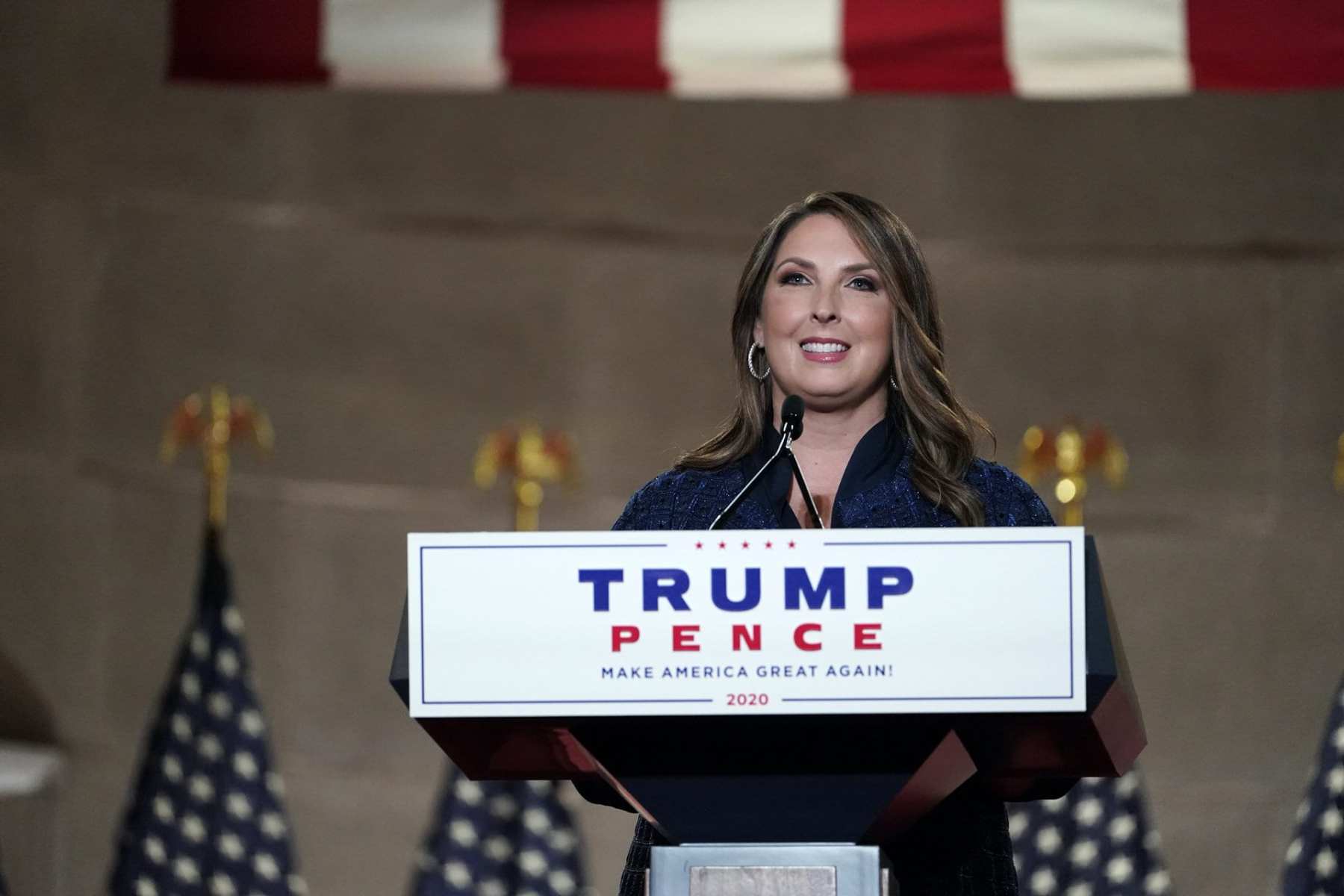Republican National Committee Chair Ronna McDaniel opened her speech on the first night of her party’s convention on Monday with a joke crafted for a coveted group of voters: suburban women.
“Democrats started their convention last week with Eva Longoria, a famous Hollywood actress who played a housewife on TV. Well I’m actually a real housewife, and a mom from Michigan, with two wonderful kids in public school,” McDaniel said after asking for prayers for those affected by wildfires in California, storms in Iowa and tropical storms heading toward Louisiana and the Gulf Coast.
McDaniel’s remarks were an allusion to recent statements made by President Donald Trump, who warned “The Suburban Housewives of America” on Twitter last month that rival White House candidate Joe Biden’s housing and zoning proposals would “destroy your neighborhood and your American Dream.” Earlier this month, Trump wrote: “The ‘suburban housewife’ will be voting for me.”
Trump’s mental picture of White suburban women is dated. Only about a quarter of mothers in 2018 stayed at home, down from about half in the 1960s, according to the Pew Research Center, and suburban areas are increasingly racially diverse. But the president’s focus on the constituency is a nod to suburban women’s enduring electoral power.
Suburban voters are a growing part of the electorate and, in recent presidential elections, their support is critical for electoral success. Over the years pollsters have ascribed descriptors like “soccer moms” and “Walmart moms” to White women living in suburban areas who are wooed by presidential candidates.
McDaniel’s characterization of herself as a “real housewife” could be an effort to give a 2020 update to Trump’s profile of suburban women, many of whom, like McDaniel, not only work outside the home but have thriving careers.
Trump has boasted about the support he received from women in 2016, sometimes saying incorrectly that women backed him over Democratic rival Hillary Clinton, the first woman presidential nominee of a major political party.
Trump did well with White women in 2016, with somewhere between 46 percent to 52 percent of them casting ballots for him. Clinton won women overall by roughly a 15-point margin, according to a Pew analysis of validated voters.
The Trump and Biden campaigns know that White suburban women are some of the swingiest voters — more likely to change their minds about the president than their male counterparts. A shift of several percentage points among them from 2016 to 2020 could make or break the president’s re-election chances.
Trump and his fellow Republicans’ focus on “suburban housewives” comes at a time when polling portends that a potentially historic gender gap could be taking shape, with Biden leading Trump among women this month by 15 to 29 points, according to an analysis by the Center for American Women and Politics at Rutgers University.
Biden’s promise to name a woman as his running mate early in a bruising primary with the most diverse field of candidates in history was an early nod from the former vice president that he understood the role women will play in November.
McDaniel, 47, attempted to defuse the impact of Biden’s eventual selection of Kamala Harris, a U.S. senator from California and the state’s former top prosecutor, by dismissing it as identity politics. Harris, who is Black and Indian-American, is the first woman of color to be a vice presidential candidate on a major-party ticket.
McDaniel likewise downplayed history-making aspects of her own career, saying that she “happens to be only the second woman in 164 years to run the Republican Party.”
“And unlike Joe Biden, President Trump didn’t choose me because I’m a woman, he chose me because I was the best person for the job,” McDaniel said.





